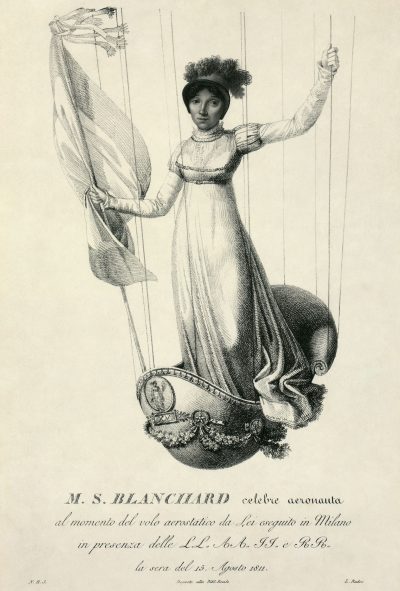 When I reviewed The Aeronauts earlier this year, I was disappointed to discover that its heroine, Amelia, didn’t exist, being a gender-swapped version of Henry Coxwell. But when I was looking into that, I discovered the existence of Sophie Blanchard, arguably an even more remarkable female pioneer in the world of early flight, who was an undeniable inspiration for the character of Amelia. It’s a shame film-makers opted to invent a made-up person, when Blanchard’s exploits are more than deserving of cinematic treatment.
When I reviewed The Aeronauts earlier this year, I was disappointed to discover that its heroine, Amelia, didn’t exist, being a gender-swapped version of Henry Coxwell. But when I was looking into that, I discovered the existence of Sophie Blanchard, arguably an even more remarkable female pioneer in the world of early flight, who was an undeniable inspiration for the character of Amelia. It’s a shame film-makers opted to invent a made-up person, when Blanchard’s exploits are more than deserving of cinematic treatment.
She was born as Marie Madeleine-Sophie Armant in 1778, at a time when any kind of manned flight had yet to be achieved. But in the following decade, the Montgolfier brothers pioneering efforts helped trigger a continent-wide fascination with balloons and their occupants. Exhibitions and demonstrations proved wildly popular, drawing crowds in the tens of thousands, and setting off crazes for balloon-themed clothing, products and even hairstyles. One such balloonist was Jean-Pierre Blanchard, who had been taking to the air since just a few months after the Montgolfiers launched their debut flight. Among his exploits were the first flight to cross the English Channel and the first in the Americas, in front of President George Washington.
Blanchard had already been married, but abandoned his first wife and their four children for his aerial career. In 1804, he married Ms. Armant, who was not perhaps the kind of person you’d expect to become a daredevil. Her persona was described as being “so nervous that she startled at loud noises and was afraid to ride in horse-drawn carriages.” But she apparently had no such fear of taking her life in her hands. For that was a genuine risk in the early days, with the technology very much untested, and highly explosive hydrogen gas the favoured means of achieving the necessary life. In the event something went wrong, escape options were limited, with parachutes also in their infancy.
Sophie made her first ascent alongside her husband on December 27, 1804, and went solo on only her third flight, the following August in Toulouse. Other women had gone up in balloons before her, but she was the first to pilot her own craft, and become mistress of her own destiny. For Jean-Pierre, her presence alongside him proved helpful. He was not the best of businessmen and had run up considerable debts in the course of his work – this was not a cheap endeavour. The novelty of having a woman co-pilot proved good publicity, and helped draw crowds that were willing to pay for the experience.
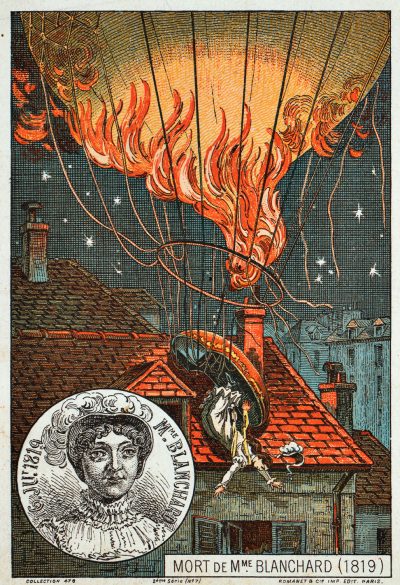 For by this point, the novelty of merely seeing someone slowly ascend into the air had worn a bit thin. The Blanchards needed to jazz their spectacle up a bit to keep the crowds coming back. This included letting off fireworks from the balloon – a hazardous practice, given the inflammable nature of both the balloon and its gaseous contents – and tossing dogs out of the basket. Attached to those then recently-invented parachutes, I should add.
For by this point, the novelty of merely seeing someone slowly ascend into the air had worn a bit thin. The Blanchards needed to jazz their spectacle up a bit to keep the crowds coming back. This included letting off fireworks from the balloon – a hazardous practice, given the inflammable nature of both the balloon and its gaseous contents – and tossing dogs out of the basket. Attached to those then recently-invented parachutes, I should add.
They toured Europe for several years, but tragedy struck during an exhibition at The Hague, in the Netherlands, on February 20th, 1808. It wasn’t directly a balloon accident, however. Jean-Pierre suffered a heart attack, and toppled out of the basket, from beside his wife. The resulting fall didn’t kill him immediately, and he lingered on for more than a year, before dying from his injuries in March 1809. Financially, this left Sophie responsible for his debts, and she had to keep flying, to pay off her late husband’s creditors.
Night flights and pyrotechnics were among her specialties and helped get her the attention of none other than the Emperor Napoleon. He had an “official balloonist”, André-Jacques Garnerin, but Garnerin fell out of favour after an ascent to mark Napoleon’s coronation went wrong and turned into an embarrassment to the Emperor. [Garnerin’s niece Élisa, was another pioneering aeronautess, and something of a rival to the subject of this piece]. Blanchard took over the position, and was reportedly named his Chief Air Minister of Ballooning. In that role, she looked into the possibility of invading England by balloon. Fortunately for the British, the prevailing winds across the Channel made the idea unfeasible.
Sophie proved just as popular after Napoleon was deposed, and she was wise enough to play both sides, remaining politically neutral. On the return of King Louis XVIII to the throne in May 1814, she marked his entrance to the French capital with a balloon ascent from the Pont Neuf as part of the celebrations. The new monarch was impressed enough with the spectacle to anoint Sophie the “Official Aeronaut of the Restoration”. By this point, her fame had spread throughout Europe and she travelled the continent, successfully paying off all the debts she had inherited from her husband.
 These exhibitions were not without incident. She flew over the Alps, and some of her flights lasted as long as 14½ hours, reaching a height of over 12,000 feet. At that height, the environment was so cold, icicles formed on her face, and she was in danger of passing out due to a lack of oxygen. In 1817, she almost drowned when her selected landing-spot turned out to be a marsh, and she became caught up in her craft’s rigging after touchdown. Only the fortuitous arrival of assistance saved her from a watery grave. However, it was only a stay of execution, rather than a pardon.
These exhibitions were not without incident. She flew over the Alps, and some of her flights lasted as long as 14½ hours, reaching a height of over 12,000 feet. At that height, the environment was so cold, icicles formed on her face, and she was in danger of passing out due to a lack of oxygen. In 1817, she almost drowned when her selected landing-spot turned out to be a marsh, and she became caught up in her craft’s rigging after touchdown. Only the fortuitous arrival of assistance saved her from a watery grave. However, it was only a stay of execution, rather than a pardon.
Blanchard’s luck finally ran out on July 6, 1819, on her 59th recorded flight – an almost identical number to that completed by Jean-Pierre – at the Tivoli Gardens in Paris. Conditions were not ideal, with a strong wind blowing when she took off on a late-evening exhibition. The balloon had attached to it containers of “Bengal fire”, an early pyrotechnic, to enhance the spectacle. Sophie had trouble taking off, and while still on the way up, the balloon and its hydrogen contents caught fire. This was most likely due to contact with a tree knocking some of the Bengal fire out of its vessel, and onto the flammable fabric.
Some spectators initially mistook the conflagration as part of the show, until the craft began to descend rapidly, though its pilot tried to slow the descent by dropping ballast. Initially, this seemed to have worked, and the balloon came down on the roof of a nearby house at a survivable speed. However, Blanchard again was not able to make a clean exit. She was entangled in netting, and when the balloon then fell off the roof, it dragged the pilot with it, crashing to the street below. That secondary descent proved to be a fatal one for Sophie.
A collection was immediately taken up for her children, but on discovering there were none alive(!), the money raised was used to build a memorial (above, right) for her grave in Père Lachaise Cemetery, depicting a burning balloon, which seems a tad callous. Not that I imagine Sophie cared much. On her tombstone is carved “victime de son art et de son intrépidité”, which translates as, “Victim of her art and bravery.”
History has since largely forgotten Blanchard. There was an animated documentary in production about her, The Fantastic Flights of Sophie Blanchard, but there has been little news since the trailer (below) was released, despite a successful Kickstarter campaign in 2013. Otherwise, as The Aeronauts showed, she and the other early woman balloonists such as Élisa Garnerin and Élisabeth Thible, are little more than a historical curiosity. That seems a shame.
 History is largely filled with people being unpleasant to each other, usually for belonging to a different race, religion, nationality or even species [if you want to go back to the Cro-Magnons pushing out the Neanderthals about 40,000 years ago]. It’s sad and unfortunate, but it’s not something for which I feel personal responsibility – not least because it tends to work in both directions. My ancestors may have been part of the British Empire who, for example, invented the concentration camp in the Boer War. But my ancestors were also subject to the ethnic cleansing of the Highland Clearances, forced out to make way for sheep. Attempts to make me feel guilty for the sins of my forefathers are thus largely doomed to fail.
History is largely filled with people being unpleasant to each other, usually for belonging to a different race, religion, nationality or even species [if you want to go back to the Cro-Magnons pushing out the Neanderthals about 40,000 years ago]. It’s sad and unfortunate, but it’s not something for which I feel personal responsibility – not least because it tends to work in both directions. My ancestors may have been part of the British Empire who, for example, invented the concentration camp in the Boer War. But my ancestors were also subject to the ethnic cleansing of the Highland Clearances, forced out to make way for sheep. Attempts to make me feel guilty for the sins of my forefathers are thus largely doomed to fail.




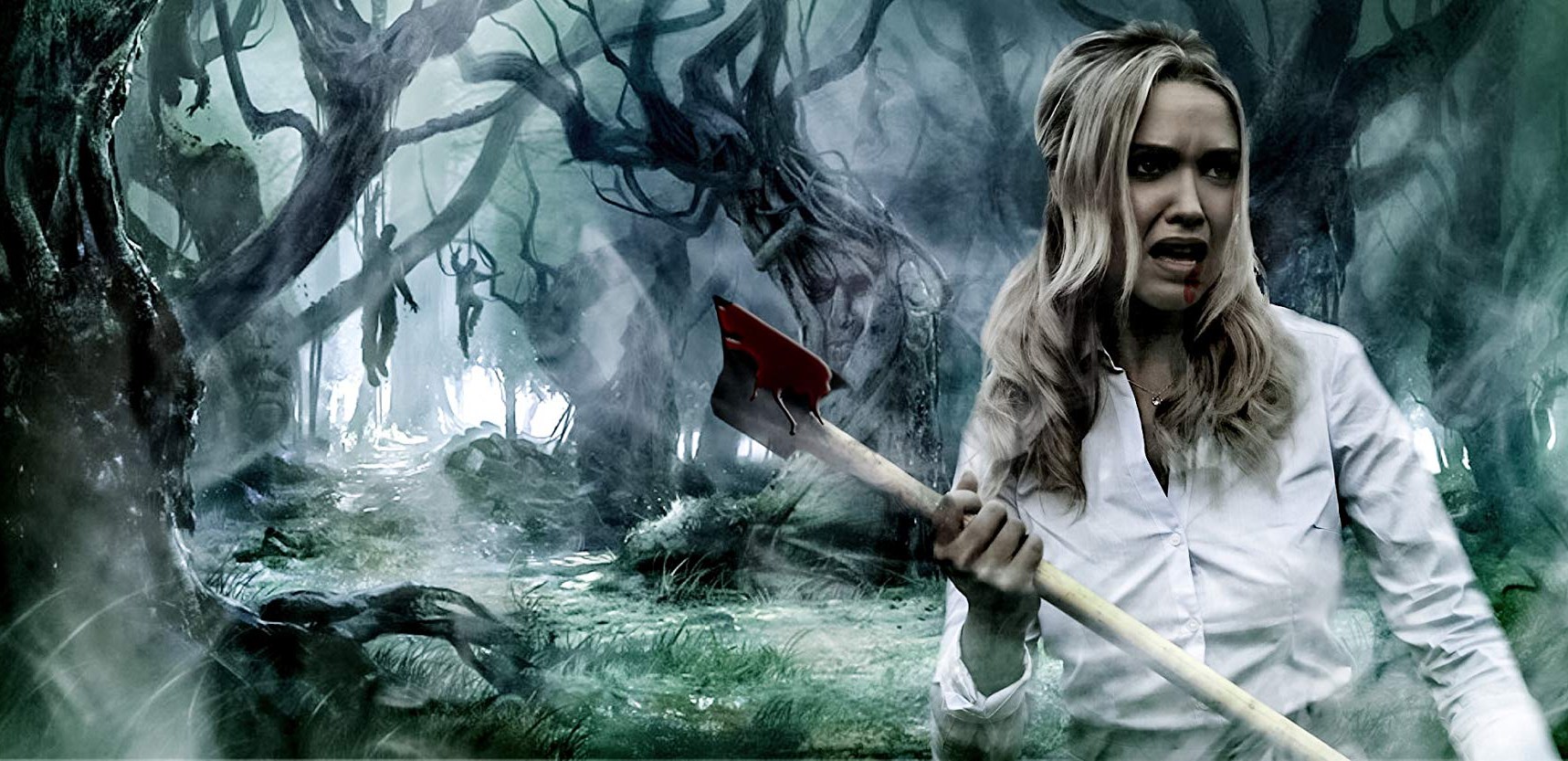 ★★
★★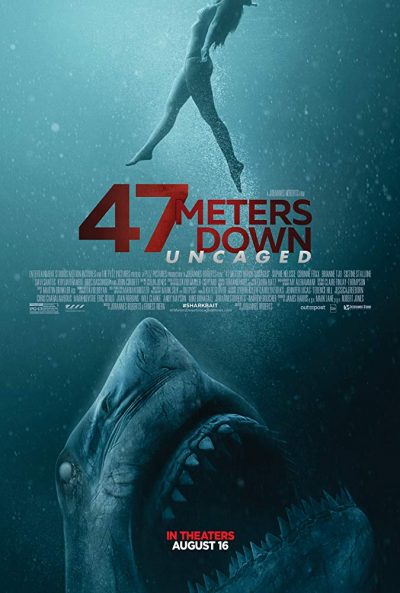 Director Roberts returns for a sequel to
Director Roberts returns for a sequel to  In the 1880’s, the town of Butte, Montana is a mining boom-town – instead of gold, it’s mostly copper which fuels its economy. The wealth comes at a cost, as the huge amounts of acrid smoke belched from the smelters and plants turns day into night, along with creating perpetually “noxious, disgusting air.” Off the train and into this smog steps Cat, a woman with no shortage of a past. A former prostitute, but also a ranch-hand, her preferred outfit of blue jeans and six-shooter is most atypical for a woman of the times. Almost immediately, she is drawn into the mysterious and suspicious death on the street of another “fallen woman,” Norma. The apparent cover-up goes right up to “Copper Kings” such as Marcus Daly (a real tycoon from that time and place), and it quickly becomes clear that whoever was behind Norma’s demise, is none to happy to find Cat looking into the matter. To find the truth, she’s going to have to navigate her way through both ends of Butte society.
In the 1880’s, the town of Butte, Montana is a mining boom-town – instead of gold, it’s mostly copper which fuels its economy. The wealth comes at a cost, as the huge amounts of acrid smoke belched from the smelters and plants turns day into night, along with creating perpetually “noxious, disgusting air.” Off the train and into this smog steps Cat, a woman with no shortage of a past. A former prostitute, but also a ranch-hand, her preferred outfit of blue jeans and six-shooter is most atypical for a woman of the times. Almost immediately, she is drawn into the mysterious and suspicious death on the street of another “fallen woman,” Norma. The apparent cover-up goes right up to “Copper Kings” such as Marcus Daly (a real tycoon from that time and place), and it quickly becomes clear that whoever was behind Norma’s demise, is none to happy to find Cat looking into the matter. To find the truth, she’s going to have to navigate her way through both ends of Butte society. Two days after getting married, Mary Harris (Bernadette) is involved in a car accident which kills her new husband and leaves her barely able to walk. But she has one goal: to compete in the Furnace, an ultra-marathon race through the African wilderness, in which she and her late husband had been planning to take part. This aim goes strongly against the desires of her mother, but Mary won’t be deterred. With the help of her mentor (Dlamini, looking like a younger version of Morgan Freeman), nicknamed “Coffin” due to his day-job as a gravedigger, she claws her way back to fitness, and to the start-line. But is she prepared for everything the environment can throw at her, and make it to the finish? To do so, she’ll have to overcome not just the lethal heat, but also predators for whom she’d be a tasty snack, and poisonous scorpions whose venom induces disorienting hallucinations.
Two days after getting married, Mary Harris (Bernadette) is involved in a car accident which kills her new husband and leaves her barely able to walk. But she has one goal: to compete in the Furnace, an ultra-marathon race through the African wilderness, in which she and her late husband had been planning to take part. This aim goes strongly against the desires of her mother, but Mary won’t be deterred. With the help of her mentor (Dlamini, looking like a younger version of Morgan Freeman), nicknamed “Coffin” due to his day-job as a gravedigger, she claws her way back to fitness, and to the start-line. But is she prepared for everything the environment can throw at her, and make it to the finish? To do so, she’ll have to overcome not just the lethal heat, but also predators for whom she’d be a tasty snack, and poisonous scorpions whose venom induces disorienting hallucinations.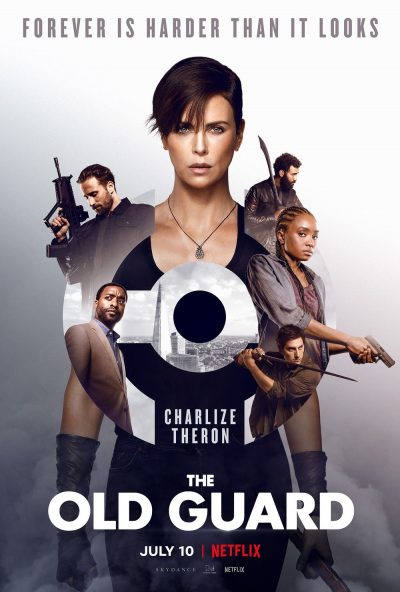 While a serviceable entry in the beloved genre of “Charlize Theron kicks ass”, this does have to be classed as disappointing in comparison to the epic awesomeness which were
While a serviceable entry in the beloved genre of “Charlize Theron kicks ass”, this does have to be classed as disappointing in comparison to the epic awesomeness which were  After a boat-wreck, Jennifer Remming (Clemons) washes ashore on a deserted tropical island, and has to make do with what she can find and forage. While there are no other people on the island, she’s not alone. It becomes increasingly clear that a “something” is predating for food at night there. She eventually finds out what it is: a large, amphibious and very hungry creature, walking on two legs, and capable of dragging its prey back into its lair beneath the water. Needless to say, she’s delighted when two other survivors wash up in a lifeboat: her boyfriend Lucas (Cohen) and friend Mia (Mangan-Lawrence). But convincing them of the threat, and the need to get off the island immediately, is a little tricky, because it turns out Jennifer has a little history of making things up. However, “being eaten” turns out to be fairly convincing proof, as evidence goes…
After a boat-wreck, Jennifer Remming (Clemons) washes ashore on a deserted tropical island, and has to make do with what she can find and forage. While there are no other people on the island, she’s not alone. It becomes increasingly clear that a “something” is predating for food at night there. She eventually finds out what it is: a large, amphibious and very hungry creature, walking on two legs, and capable of dragging its prey back into its lair beneath the water. Needless to say, she’s delighted when two other survivors wash up in a lifeboat: her boyfriend Lucas (Cohen) and friend Mia (Mangan-Lawrence). But convincing them of the threat, and the need to get off the island immediately, is a little tricky, because it turns out Jennifer has a little history of making things up. However, “being eaten” turns out to be fairly convincing proof, as evidence goes…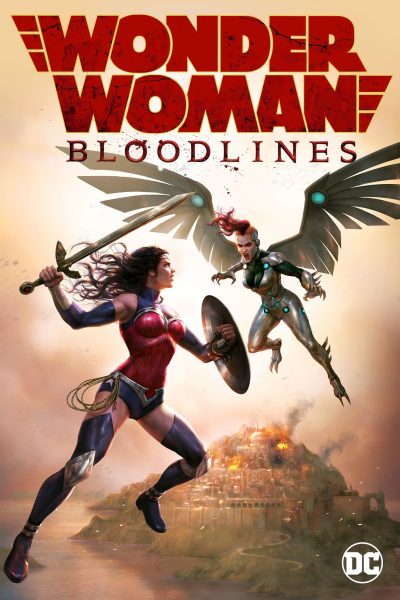 Having enjoyed the previous
Having enjoyed the previous  Really, for a reported budget of about $6,500 – and those are Canadian dollars, which currently works out to less than five grand in freedom dollars – this is quite impressive. You could argue that trying to create a convincing post-apocalyptic scenario on such a tiny budget is biting off more than you can chew. And there are certainly moments which just don’t work. But in its low-key approach, it’s probably a more accurate reflection than many of the way in which the world might end. Not with a bang, but with a whimper, and a slow grinding to a halt.
Really, for a reported budget of about $6,500 – and those are Canadian dollars, which currently works out to less than five grand in freedom dollars – this is quite impressive. You could argue that trying to create a convincing post-apocalyptic scenario on such a tiny budget is biting off more than you can chew. And there are certainly moments which just don’t work. But in its low-key approach, it’s probably a more accurate reflection than many of the way in which the world might end. Not with a bang, but with a whimper, and a slow grinding to a halt. When I
When I  For by this point, the novelty of merely seeing someone slowly ascend into the air had worn a bit thin. The Blanchards needed to jazz their spectacle up a bit to keep the crowds coming back. This included letting off fireworks from the balloon – a hazardous practice, given the inflammable nature of both the balloon and its gaseous contents – and tossing dogs out of the basket. Attached to those then recently-invented parachutes, I should add.
For by this point, the novelty of merely seeing someone slowly ascend into the air had worn a bit thin. The Blanchards needed to jazz their spectacle up a bit to keep the crowds coming back. This included letting off fireworks from the balloon – a hazardous practice, given the inflammable nature of both the balloon and its gaseous contents – and tossing dogs out of the basket. Attached to those then recently-invented parachutes, I should add. These exhibitions were not without incident. She flew over the Alps, and some of her flights lasted as long as 14½ hours, reaching a height of over 12,000 feet. At that height, the environment was so cold, icicles formed on her face, and she was in danger of passing out due to a lack of oxygen. In 1817, she almost drowned when her selected landing-spot turned out to be a marsh, and she became caught up in her craft’s rigging after touchdown. Only the fortuitous arrival of assistance saved her from a watery grave. However, it was only a stay of execution, rather than a pardon.
These exhibitions were not without incident. She flew over the Alps, and some of her flights lasted as long as 14½ hours, reaching a height of over 12,000 feet. At that height, the environment was so cold, icicles formed on her face, and she was in danger of passing out due to a lack of oxygen. In 1817, she almost drowned when her selected landing-spot turned out to be a marsh, and she became caught up in her craft’s rigging after touchdown. Only the fortuitous arrival of assistance saved her from a watery grave. However, it was only a stay of execution, rather than a pardon.